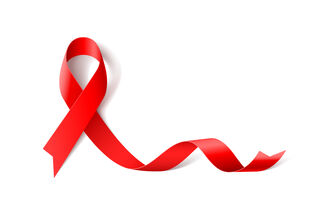Sex
The Different Meanings of World AIDS Day
There is much medical progress but the stigma sticks around.
Posted November 28, 2021 Reviewed by Jessica Schrader
Key points
- We must not forget the vibrant stories of those who died of AIDS-related illnesses.
- It's important to celebrate the amazing medical progress that has been made.
- We need to keep talking about HIV and sexual health on a regular basis to help stop the stigma.

Occasions like World AIDS Day are opportunities to talk openly about HIV. We can mourn those who died far too early. Talking about HIV is not only talking about the dead, but it is also important to hear the joyous life stories of those who died. Indeed, before they died, many loved passionately, laughed hard, and partied fiercely. Some people were alive on this earth for too a brief moment, yet, they touched people’s hearts permanently. If we really want to honour those who died of AIDS-related illnesses, we have to remember their aliveness, not just the trauma of the epidemic.
In the middle of the raging epidemic in the '80s and early ’90s, HIV was considered a shameful disease, not only because it was a sexually transmitted infection but also because it affected the gay male community predominantly. Some religious and homophobic people even took the opportunity to promote it as a welcome gift from God, a message from the Almighty itself that being gay was an abomination, and HIV was the punishment. HIV was shrouded in shame and stigma.
The shame and stigma meant that the sexuality—and the stories of love and aliveness—of those who died of AIDS-related illnesses were often erased. Families pretended that their relative died of cancer, accident, or anything but AIDS. The friends and lovers of the deceased were often pushed away by families and prevented from attending funerals.
It is an act of defiance not to allow the erasure of those people. It is an act of love to remember the colourful stories of their vitality, their vibrant sexuality, their sensuality, their smile, their laughter.
World AIDS Day is also a time to celebrate amazing medical progress. The rate of HIV infection has dramatically reduced thanks to PrEP (pre-exposure prophylaxis), which is very good news. There is more and more hope that today's excellent medical research will find a vaccine one day.
World AIDS Day is for campaigning, too. Despite the amazing medical progress, the stigma and the shame haven’t moved on much since the ’80s. It is still considered a "gay thing." Some ghastly language still remains, for example, calling the HIV-negative status "clean," which implies that the HIV-positive status is "unclean." There is much discrimination and attack online, especially on dating apps, when one discloses their HIV-positive status.
What can we do to stop the shame and starve the stigma? I think we need to talk about HIV more, not just on World AIDS Day, but every day. We need to adapt our thinking to the 21st century because now, HIV doesn't have the same meaning as it did back in the ’80s. Thankfully, these days, people living in Western countries generally don't die of AIDS-related illnesses. HIV has become a chronic condition, just like diabetes is. Let’s stop shaming people who live with the virus.
If we want to combat the stigma, we have to be telling people, and repeating, some crucial information. Here are some of them:
- A person who is HIV-positive and who adheres to their medication is likely to have an undetectable viral load, which means they cannot pass on the virus. If your HIV status is negative, it is safe to have sex with someone whose HIV status is positive with an undetectable viral load.
- If your HIV status is positive with an undetectable viral load, it is your choice to disclose your status. It is the responsibility of all sexual partners to look after their sexual health, not just the one with the HIV-positive status.
- However, it is a criminal offence to intentionally transmit the virus to others.
- If you want to have sex with someone whose HIV status hasn’t been discussed, it is important not to make assumptions and protect your sexual health accordingly, with condoms or PrEP.
- You can have a sexual and romantic relationship with someone whose HIV status is different from yours. There is nothing wrong with it. People living with HIV have the same life expectancy as anyone else, provided they take their medication as prescribed.
- People who choose to be on PrEP aren’t "sluts." However, they are people who look after their sexual health in a responsible and planned manner.
- People living with HIV are human beings first, not a diagnosis. They are worthy of the same respect as anyone else. They deserve the same good, flourishing, and vibrant sex life as anyone else.
- HIV doesn’t discriminate against people’s sexual orientation. Heterosexual people are just as vulnerable to contract the virus as LGBTQ+ people. It is important to take good care of your sexual health, no matter what your sexual orientation is.
On World AIDS Day, we can start those conversations and keep them going all year round. Let’s talk with friends, and share thoughts, ideas, and stories. Let’s keep informing people of the accurate knowledge. We can educate and support each other, and become the loving and caring people that we aspire to be.


